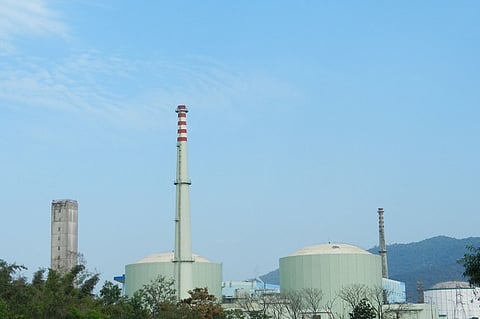

Environmental activists are determined to oppose the expansion of the Kaiga Atomic Power Station in the buffer zone of the Kali Tiger Reserve in Uttara Kannada district of Karnataka. Currently, the plant has four units. The Nuclear Power Corporation Ltd. has proposed a fifth and a sixth unit, the proposal for which has cleared all environmental regulatory hurdles from both the state and union governments recently.
Activists argue that expanding the Kaiga plant will result in the loss of 54 hectares of pristine forests in the fragile Western Ghats near the Kali Tiger Reserve. They also question the practicality of setting up more nuclear power plant units or replacing it with other safer and cheaper power generating options like solar and wind energy.
Incidentally, the Karnataka High Court also recently ordered an interim stay on further felling of trees by the National Highway Authority of India for the expansion of NH4A (Belagavi-Goa), after it learnt that the authorities had violated the Forest Protection Act. Encouraged by this, activists opposing the new units in the Kaiga plant are planning to approach the court, if other means of protest do not work.
A threat to eco-sensitive area
“When the whole world is shifting away from nuclear power and looking for eco-friendly sources like solar and water, why do we want to create problems like Fukushima (Japan) with already four dams created in the upper course of the Kali river? Why do we want to destruct forests further when climate change is already impacting us?” asks Joseph Hoover, a former member of State Wildlife Board and founder of United Conservation Movement.
“It is not necessary as the state is power surplus and will primarily help other states. There is also the issue of increased cancer cases in the area because of the plant,” he added.
A Tata Memorial Centre report in 2010 had said there was a spurt in cases of cancer over the past two decades in Kaiga. Experts insist that this is because of radioactive pollution caused by the nuclear power plant.
Advocate Prince Isaac, who represented the United Conservation Movement, which was one of the petitioners in the NH4A case, said, “This area is classified as eco-sensitive area-1, according to a specific order from November 2013 under Section 5 of the Environmental Protection Act by the Union Ministry of Forest, Environment and Climate Change. By the same order, no developmental work (construction involving space more than 20,000 sq metres) can take place in this zone.”
Pointing out that the government is breaking its own law, he added, "Other than this, for projects in sensitive areas, there is a legal mandate to carry a biological impact assessment as there are rare species that are endemic to the area. That has not been undertaken here.”
Read: Environmentalists oppose expansion of Kaiga nuclear plant in K’taka citing ecology
In December 2018, local environmental groups — Uttara Kannada Zilla Psrisara Samrakshana Samiti, Bedti Aghanashini Kolla Samiti and Vruksha Laksha and residents of the area – had also opposed the expansion of the power plant during the mandated public consultation process. Recently, even Gangadharendra Saraswati Swamiji, the seer of Sonda Swarnavalli Mutt, had also opposed the nuclear plant’s expansion.
Green signal from authorities
Despite opposition, the expansion has already been given a go-ahead by authorities. An expert committee led by Union Minister for Environment and Forests Prakash Javekarhad gave a conditional go-ahead, and so did the Karnataka Forest Department.
Speaking to TNM, a top Forest Department official said, “The land was already leased to them. Following norms, the detailed project report was cleared previously. This time too they have given us the detailed project report (DPR) and we have approved it. There is no additional land involved [in the expansion].”
The National Tiger Conservation Authority (NTCA), meanwhile, has laid down some conditions regarding the release of effluents into the Kali river, and for conserving the forest flora and fauna. The conditions include regular monitoring of the soil and groundwater samples for pollutants and heavy chemicals.
But Vidya Dinker, a well-known activist based in coastal Karnataka, expressed her disappointment, saying, “The Ministry of Environment has become a clearing house for projects and people have to lean on other means such as popular mobilisation, or the National Green Tribunal to safeguard the environment. The Ministry is hardly taking measures to put in place checks and balances.”
She added, “Once the project is cleared, there is hardly any scrutiny as the department officials often file cursory monitoring reports.”